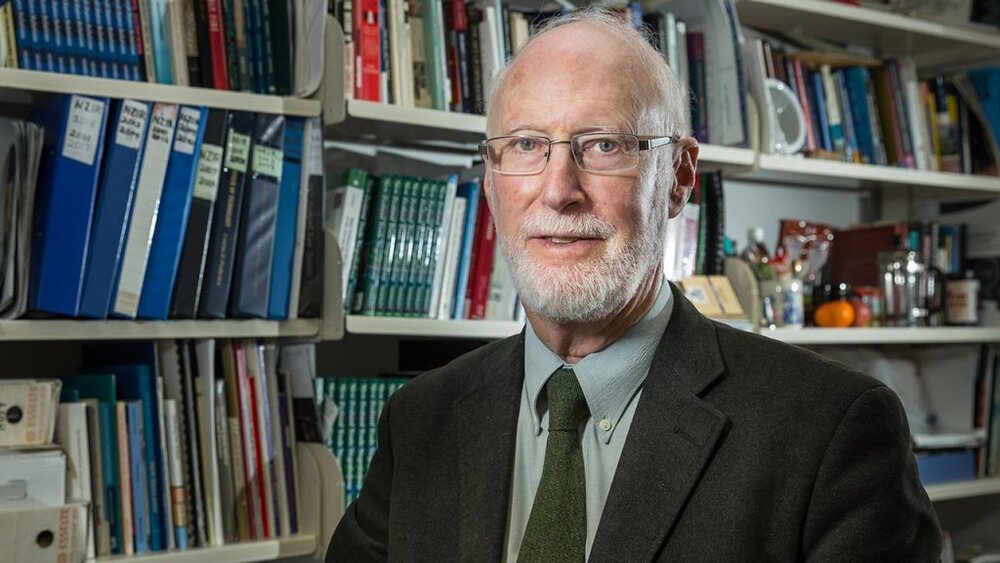U.S. needs to keep friendly ties with Arab states in rivalry with Iran: professor

TEHRAN – A professor of international relations says it is in the U.S. interest to support Arab states to keep energy prices low and contain Iran.
“Democracy is desirable but secondary in this geopolitical rivalry,” Stephen Hoadley, the associate professor of politics and international relations at the University of Auckland, tells the Tehran Times.
“It is in U.S. and Western interest to keep Middle East (West Asia) energy prices low and to support governments that are friendly to the U.S. and pushing back against Iran's influence in the region, e.g., in Iraq, Syria, and Lebanon,” Hoadley opines.
Though it was expected that the new American administration play a constructive role in West Asia, such as ending the Saudi-led war on Yemen, Biden’s performance has proven that U.S. policy has not changed.
Last month, the Biden administration approved a $650m weapon sale to Saudi Arabia that has been pounding Yemen since March 2015.
On U.S. foreign policy since Trump's tenure up to now, Hoadley says “Biden's policies are more international, collaborative, and pragmatic problem-solving than Trump's policies.”
While some critics believe that that Trump revealed the true face of the U.S., Democrats make every effort to disguise their real intentions with colorful promises, Hoadley, the honorary Captain in the Royal New Zealand Navy, takes Biden officials' public announcements to be sincere reflections of Democratic Party policies.
“Republicans and adversaries may disagree. I don't believe it is useful to engage in conspiracy theories about what is 'real' U.S. policy as if there is a “secret U.S. plan” to dominate the world,” Hoadley remarks.
“Those days are over. But it is useful to talk about U.S. interests as expressed by the government of the day, and by thoughtful journalists, academics, and think tank analysts.”
Despite differences, there are certain issues that both Democrats and Republicans cherish, such as deepening relations with Arab monarchies in the Persian Gulf.
Many ask whether U.S. strong ties with autocratic Arab states would help spread democracy in the region.
The Auckland University professor believes “it is in U.S. and Western interest to keep Middle East (West Asia) energy prices low and to support governments that are friendly to the U.S. and pushing back against Iran's influence in the region, e.g. in Iraq, Syria, and Lebanon. Democracy is desirable but secondary in this geopolitical rivalry.”
Hoadley also deplores the Saudi raids on Yemen, saying, “Innocent Yemenis are suffering and need our help. I hope the U.S. and Iran will both pull back and stop supplying arms to their clients and supply food and medicine instead.”
According to international human rights organizations, the situation in Yemen is a real catastrophe. However, the Western powers keep supporting Saudi Arabia and supplying arms to it.
While the UN has called for a ceasefire, warning that an all-out battle for the provincial capital could put two million civilians at risk and cause mass displacement, the Saudi-led coalition still receives logistical and intelligence support from the U.S., UK and France.
However Yemeni resistance has shown that new regional powers are emerging and the world should be ready to encounter a multipolar world, like it or lump it.
But it seems the U.S. has not forgotten the memory of a unipolar world since World War II; apparently, the Americans are not ready to recognize a multipolar globe.
Some are raising questions whether the United States is ready to accept a multi-polar world and acknowledge the emergence of regional and global powers that can counter U.S. hegemony.
Hoadley says “Biden’s officials have never asserted ‘U.S. hegemony’ but they have asserted that U.S. and Western democracies need to ‘compete’ with China and other adversaries including Iran.”
“Under Biden, I predict a loose but persistent rivalry between the democratic countries and the authoritarian countries. Let us hope that that rivalry doesn't descend into armed conflict,” he adds.
The professor of international relations believes that “under Trump, the U.S. would concede influence to Russia and Iran by withdrawing from international institutions which would allow China to predominate.”
Hoadley concludes “there is no single ‘U.S. secret plan’ but a variety of contrasting views depending on U.S. political parties and individual American leaders.”
(NOTE: Professor Stephen Hoadley has expressed his view as an individual academic, not representing the views of his university or country.)
Leave a Comment